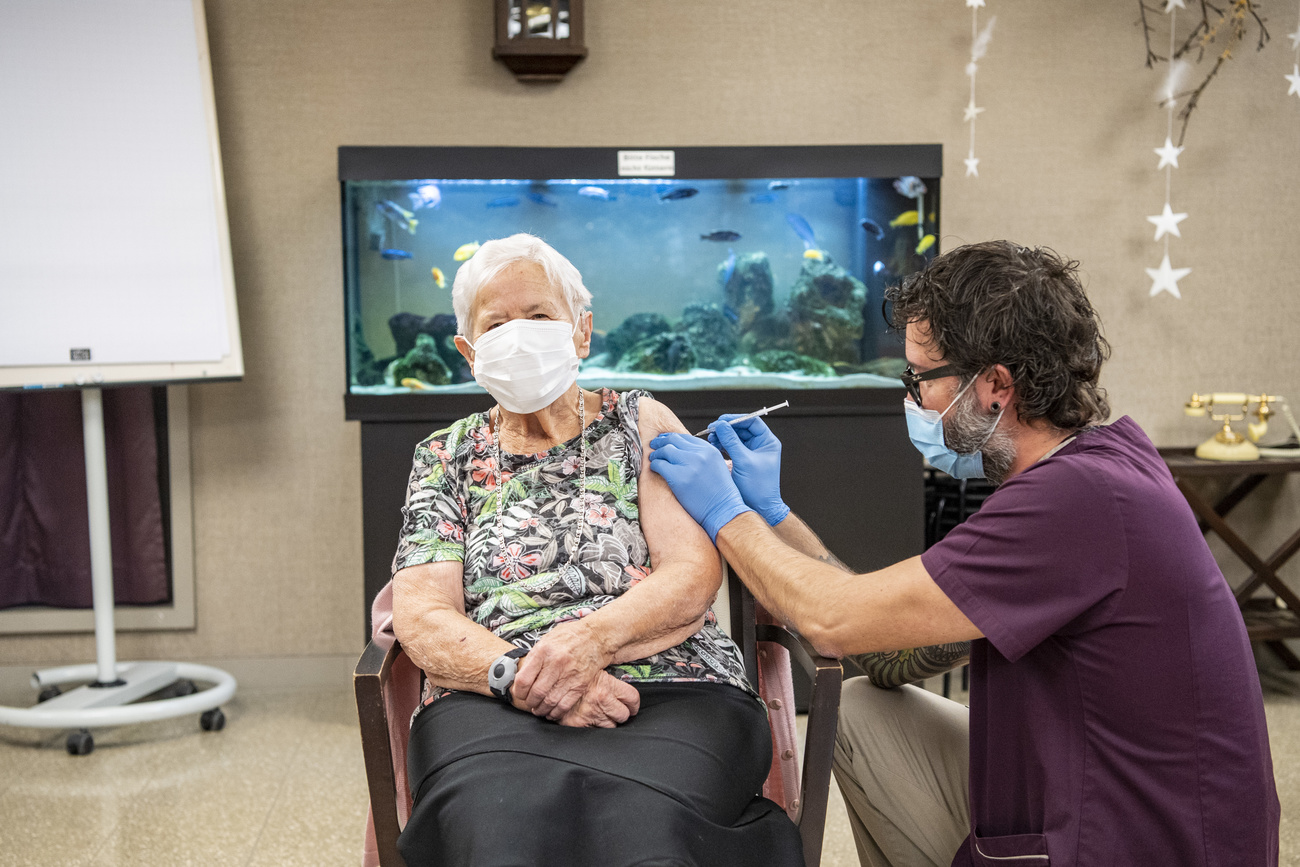
First Covid-19 vaccinations take place in Switzerland

The first person in Switzerland, a 90-year-old woman, has been vaccinated against Covid-19. The landmark jab marks the start of a vaccination programme that will be rolled out across the country in the coming weeks.
The Pfizer/BioNTech mRNA vaccine was approved by the Swiss health regulator at the weekend, paving the way for an initial 107,000 doses, out of three million on order, to arrive in the country on Tuesday.
Swissmedic is still reviewing other vaccines, including candidates from Moderna and AstraZenenca. Switzerland, with a population of 8.5 million, has ordered 15.8 million doses from these manufacturers and Pfizer/BioNTech.
The first jab took place on Wednesday in the central Swiss regions and will require a booster injection within three weeks. Hospitals and homes in other regions of the country began vaccinations on Wednesday.
The newly arrived Pfizer/BioNTech vaccine, which must be stored at -70°C, will first be housed by the Armed Forces Pharmacy before being distributed to the cantons, which can store the vials in refrigerators for a maximum of five days.
This should allow early implementers to soon begin their vaccination campaigns for elderly and vulnerable people. The main nationwide campaign will begin on January 4.
Info campaign
On Tuesday the Federal Office of Public Health (FOPH) launched its national vaccination information campaign at a news conference in Bern.
According to the campaign – available online in EnglishExternal link – the main goal of vaccination is to reduce serious illness and death, with the secondary goal of reducing the burden on the Swiss health system, which is currently under strain.
However, they reiterated that vaccination, which is free of charge, is also not mandatory – it is up to each and every individual to decide themselves if they want to take it, said Adrian Kammer, who is heading the campaign for the FOPH.
Nationally, four priority groups have been identified for receiving the jab before the general population: firstly high-risk people (over 75s, those with chronic illnesses, then over 65s); then healthcare staff or carers in close contact with patients; then close contacts of high-risk people; finally, those living or working in communal facilities of increased outbreak risk.

In compliance with the JTI standards
More: SWI swissinfo.ch certified by the Journalism Trust Initiative



























You can find an overview of ongoing debates with our journalists here . Please join us!
If you want to start a conversation about a topic raised in this article or want to report factual errors, email us at english@swissinfo.ch.